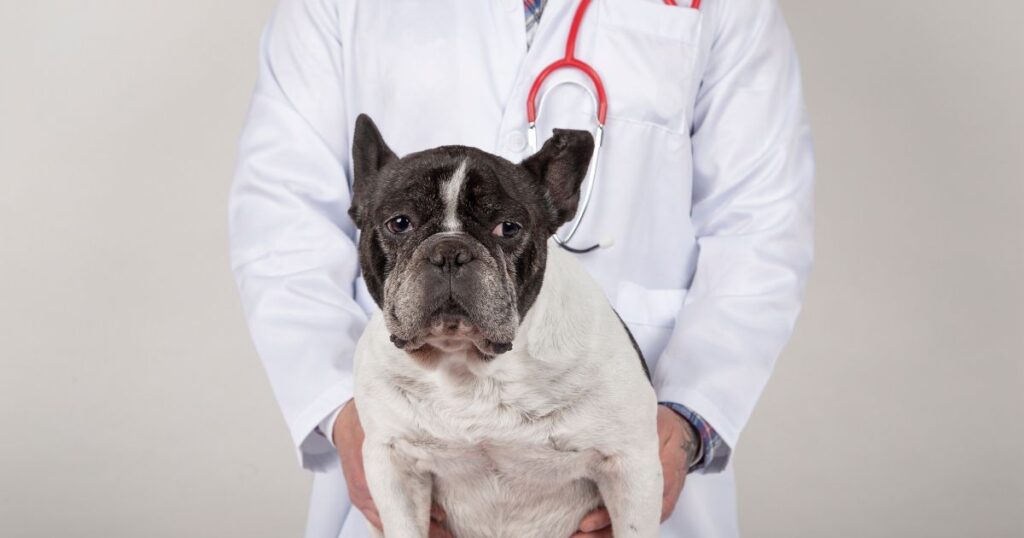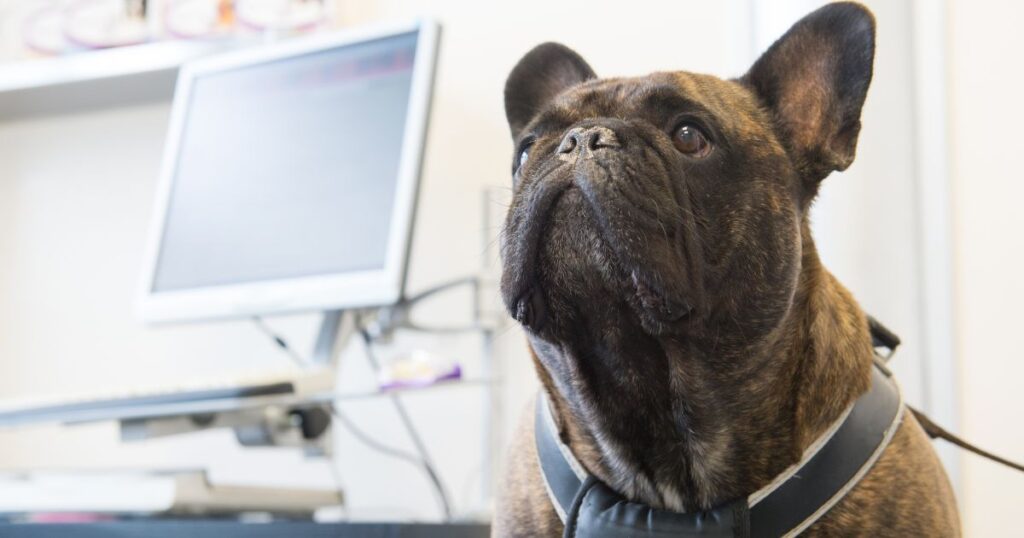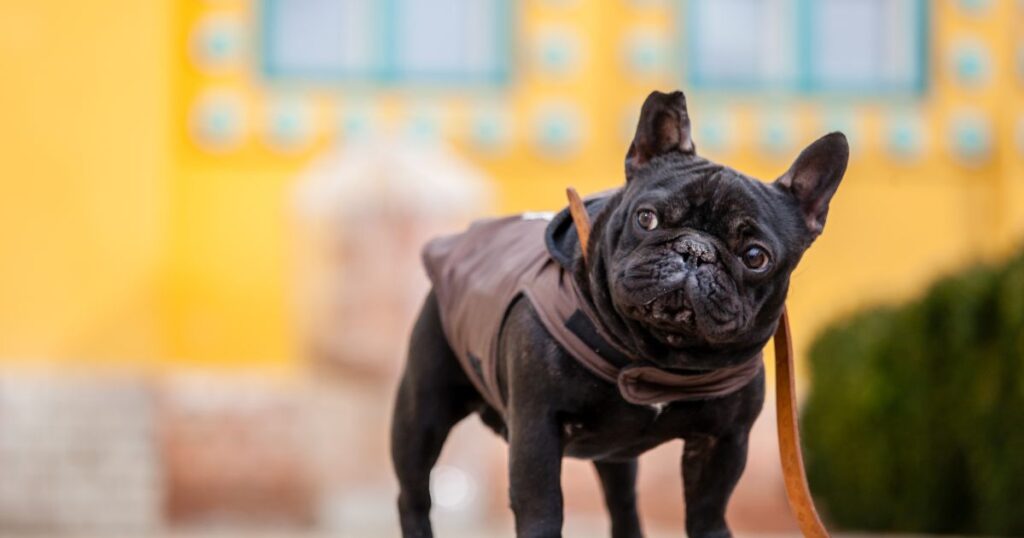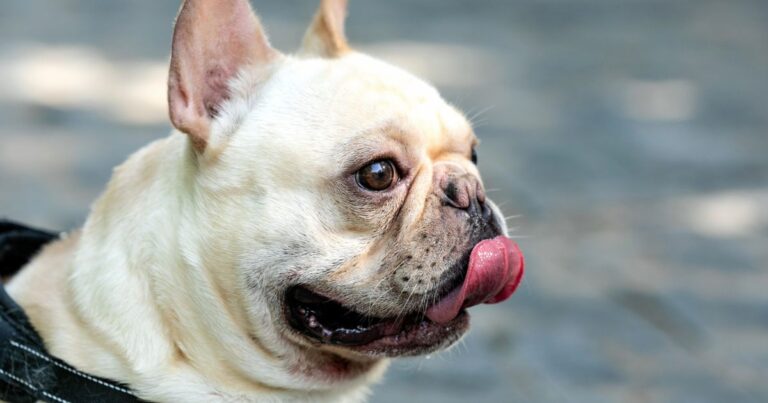French Bulldog Breathing Problems
Table of Contents
French Bulldog Breathing Problems
| Problem | Symptoms | Causes | Solutions |
|---|---|---|---|
| Snoring | Loud, irregular breathing during sleep | Narrowed nostrils, elongated soft palate | Weight management, cool environment, avoid over-exertion |
| Respiratory Distress | Rapid, labored breathing, blue or purple gums | Overheating, over-exertion, obesity | Immediate veterinary attention |
| Overheating | Panting, drooling, restlessness | Hot weather, lack of water, over-exertion | Provide cool environment, fresh water, avoid hot weather |
| Exercise Intolerance | Fatigue, panting, reluctance to exercise | Over-exertion, obesity | Regular, moderate exercise, weight management |
Ever heard a French Bulldog snort and wondered if it’s normal? Spoiler alert: it’s not always. This article dives into the world of French Bulldog breathing problems, giving you the lowdown on why your Frenchie sounds like a little piglet and what you can do about it. Stay tuned!

Introduction
If you’ve ever spent time with a French Bulldog, you’ve likely noticed their unique breathing sounds. But did you know that these sounds can sometimes indicate a health issue? In this article, we’re going to delve into the topic of French Bulldog Breathing Problems. We’ll explore what causes these issues, how to recognize them, and most importantly, what you can do to help your Frenchie breathe easier. So, let’s get started!
French Bulldogs may snort and wheeze, but they also snuggle and please. Understanding their unique needs is part of the joy of Frenchie ownership.
Understanding French Bulldogs
Before we dive into the specifics of breathing problems, it’s important to understand what makes French Bulldogs unique. Their adorable scrunched faces and compact bodies are part of a category known as brachycephalic dogs. This term, which literally means “short-headed,” refers to breeds with a broad, short skull. While this gives French Bulldogs their distinctive appearance, it can also lead to certain health issues, including breathing problems.
Signs of Breathing Problems in French Bulldogs
- Noisy breathing
- Snorting or wheezing
- Difficulty catching breath
- Fainting or collapsing
- Blue or purple gums
What are Breathing Problems in French Bulldogs?
French Bulldogs, with their adorable squishy faces, are prone to certain breathing problems due to their brachycephalic nature. Recognizing the signs of these problems, understanding how to prevent them, and knowing when to seek veterinary help can ensure your Frenchie leads a comfortable, happy life.
Breathing problems in French Bulldogs are often due to their physical attributes. Their short snouts and narrow nostrils can make it difficult for them to take in enough air, leading to labored breathing or even respiratory distress. These issues are collectively known as Brachycephalic Syndrome. It’s not uncommon to hear a Frenchie snorting, wheezing, or making other unusual noises while breathing. While these sounds can be endearing, they can also be a sign of a serious health problem.
Comparison of Brachycephalic Breeds
| Breed | Known Breathing Issues | Physical Characteristics |
|---|---|---|
| French Bulldog | Brachycephalic Syndrome, Overheating | Short snout, compact body |
| English Bulldog | Brachycephalic Syndrome, Overheating | Short snout, heavy body |
| Pug | Brachycephalic Syndrome, Overheating | Short snout, curly tail |
| Boxer | Some risk of Brachycephalic Syndrome | Short snout, muscular body |

Common Breathing Problems: Symptoms and Causes
From snoring to respiratory distress, French Bulldogs can experience a range of breathing problems. Some of the most common symptoms include noisy breathing, difficulty catching their breath, and even fainting in severe cases. These issues can be caused by a variety of factors, including an elongated soft palate, stenotic nares (narrowed nostrils), and other upper airway abnormalities. It’s important to remember that not all snoring or snorting is a sign of distress. However, if you notice a sudden change in your Frenchie’s breathing or if they seem to be struggling, it’s time to consult a vet.
Potential Health Issues in French Bulldogs
| Health Issue | Symptoms | Prevention |
|---|---|---|
| Hip Dysplasia | Difficulty walking, lameness | Regular vet check-ups, maintain healthy weight |
| Allergies | Itching, redness, frequent ear infections | Regular vet check-ups, hypoallergenic diet |
| Cherry Eye | Red, swollen third eyelid | Regular vet check-ups, surgical correction if necessary |
| Breathing Problems | Noisy breathing, exercise intolerance | Regular vet check-ups, avoid |
The Impact of Overheating and Exercise
Did you know that overheating and over-exercise can exacerbate your Frenchie’s breathing problems? French Bulldogs, like other brachycephalic breeds, are prone to overheating. This is because their short snouts make it harder for them to cool the air they breathe in, which is a key part of regulating body temperature. Over-exercise can also lead to breathing problems, as Frenchies may struggle to take in enough oxygen during strenuous activity. It’s important to monitor your Frenchie during walks and playtime, and to provide plenty of cool, fresh water.
Heat Safety Tips for French Bulldogs
| Tip | Explanation |
|---|---|
| Avoid midday heat | Exercise your Frenchie in the early morning or late evening |
| Provide fresh water | Always have cool, fresh water available |
| Use air conditioning | Keep indoor spaces cool with air conditioning or fans |
| Never leave in a car | Even with windows open, cars can quickly become dangerously hot |

How to Help Your French Bulldog
Now that we understand the issues, let’s talk about solutions. How can we ensure our French Bulldogs breathe easier and live happier, healthier lives? First, it’s important to keep your Frenchie cool, especially during hot weather. Providing an air-conditioned environment and avoiding strenuous exercise during the hottest parts of the day can help prevent overheating. Regular vet check-ups are also crucial, as they can help detect any potential breathing problems early. Finally, maintaining a healthy weight is important, as obesity can exacerbate breathing issues.
Exercise Guidelines for French Bulldogs
| Age | Recommended Exercise |
|---|---|
| Puppy (under 1 year) | Short, frequent play sessions |
| Adult (1-8 years) | Moderate daily exercise, avoid overheating |
| Senior (8+ years) | Gentle exercise, as tolerated |
When to Seek Veterinary Help
Sometimes, despite our best efforts, our Frenchies may need professional help. If your Frenchie is struggling to breathe, has blue or purple gums, or is fainting, it’s time to seek veterinary assistance. These could be signs of a serious condition like heatstroke or respiratory distress. Remember, it’s always better to be safe than sorry when it comes to your pet’s health.
Every snort and snuffle from a Frenchie is a reminder of their unique charm. But remember, a healthy Frenchie is a happy Frenchie.

Conclusion
Living with a French Bulldog means understanding and adapting to their unique needs. By being aware of potential breathing problems and knowing how to respond, we can help our Frenchies lead comfortable, happy lives. It’s all part of the journey of sharing our lives with these adorable, snorty companions.
Call to Action
Do you have experiences or tips about managing your French Bulldog’s breathing problems? Share your stories in the comments below! And for more information on French Bulldog health and care, check out our category page and our cornerstone page on French Bulldog health issues.
See also my related posts: French Bulldog Eye Conditions and French Bulldog Obesity and Weight Management
Disclaimer: This article is intended for informational purposes only. It is not a substitute for professional veterinary advice, diagnosis, or treatment. Always seek the advice of your veterinarian with any questions you may have regarding your pet’s health.
Frequently Asked Questions
Why is my French bulldog struggling to breathe?
French Bulldogs are a brachycephalic breed, meaning they have a short snout and a compact skull. This can lead to certain breathing issues, such as Brachycephalic Syndrome. If your Frenchie is struggling to breathe, it could be due to narrowed nostrils, an elongated soft palate, or other physical attributes.
How do you know if your French bulldog has breathing problems?
Signs of breathing problems in French Bulldogs include noisy or labored breathing, snorting, wheezing, and difficulty catching their breath. In severe cases, they may even faint or collapse. If you notice any of these symptoms, it’s important to consult a vet.
Why does my French bulldog stop breathing when he sleeps?
If your Frenchie appears to stop breathing during sleep, it could be a sign of sleep apnea, a condition common in brachycephalic breeds. This can be caused by the same physical attributes that lead to other breathing problems. If you notice this happening frequently, it’s best to seek veterinary advice.
Do French bulldogs’ breathing get worse with age?
As French Bulldogs age, their risk of developing certain health issues, including breathing problems, can increase. This is due to a combination of factors, including weight gain and the progression of physical abnormalities. Regular vet check-ups can help manage these issues.
How do I help my Frenchie breathe better?
There are several ways to help your Frenchie breathe easier. These include keeping them at a healthy weight, providing a cool environment, avoiding over-exertion, and regular vet check-ups. In some cases, surgical intervention may be recommended by your vet.
How can I help my bulldog breathe better?
The same strategies that work for French Bulldogs can also help other bulldog breeds. This includes weight management, providing a cool environment, avoiding strenuous exercise, and regular vet check-ups.
Should you let your French bulldog sleep with you?
This is largely a matter of personal preference. However, if your Frenchie has breathing problems, it might be best for them to sleep in their own bed where they can maintain a comfortable position.
Why is my Frenchie shaking when breathing?
If your Frenchie is shaking when breathing, it could be a sign of distress. This could be due to a lack of oxygen or a symptom of a more serious condition. It’s important to seek veterinary help immediately.
How long do French bulldogs live?
On average, French Bulldogs live between 10 to 12 years. However, this can vary based on factors like genetics, diet, exercise, and overall health care.
How do I calm my French bulldog?
French Bulldogs are generally a calm breed, but if they become anxious, techniques such as gentle petting, soothing music, and providing a safe space can help. If your Frenchie has breathing problems, keeping them calm is especially important to prevent exacerbating these issues.
How much does it cost to fix French bulldogs breathing problems?
The cost of treating breathing problems in French Bulldogs can vary widely, depending on the severity of the condition and the recommended treatment. This could range from a few hundred dollars for medication to several thousand for surgery. It’s best to discuss this with your vet to understand the potential costs.
Further Reading






